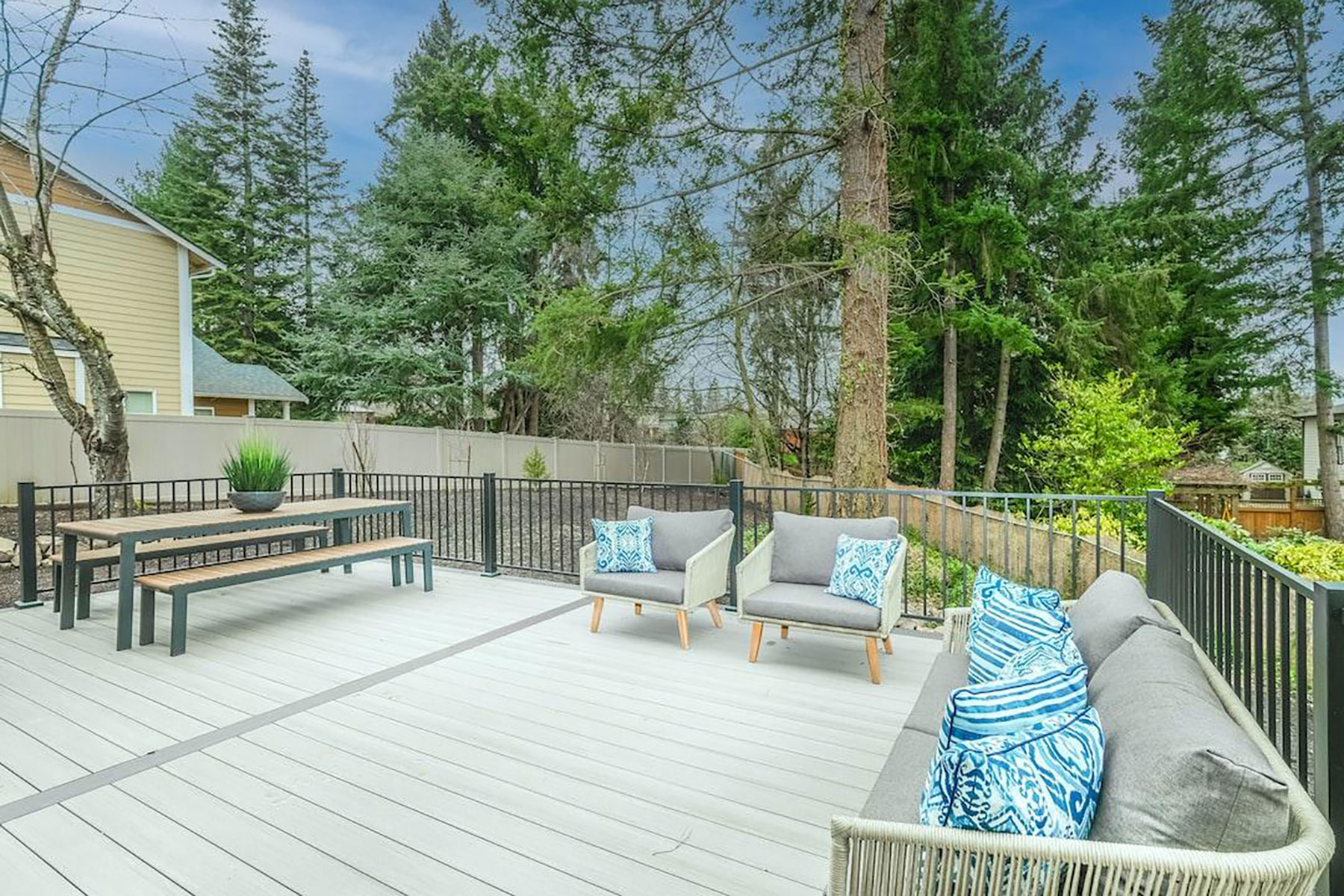As the weather starts to warm up, most homeowners are ready to enjoy their yard — and sometimes those plans start with the construction of a new deck or replacing an old one. Before you can plan any backyard barbecues with the family, you’ll need to decide which is the best decking choice for your property.
Few decks are constructed with raw wood anymore, as it requires so much maintenance to keep it from degrading in the hot sun. Today, homeowners usually choose between two different materials: PVC decking and composite decking. Both have benefits and differences when it comes to lasting longer, looking like real wood, maintenance requirements, and cost.
In this article, we’ll look at both, so you can decide what’s right for you.
Why Not Wood?
Decades ago, homeowners would simply hire a carpenter to build their deck out of planks of wood. Perhaps you own such a deck. If so, you know the reasons why builders no longer prefer this natural material. These reasons include:
- High Maintenance: You’ll need to apply water sealant on an annual basis to keep water from impacting the integrity of your deck.
- Not Mold or Water Resistant: Mold, too, plays a role in destroying wooden decks. Water can break down the wooden fibers, causing the planks to warp and split. Mold and other pests can cause internal damage, too.
- Shorter Life Span: Wooden decks last an average of 10 to 15 years. Compare that to composite decking material, which lasts around 25 to 30 years, and PVC material, which can last 50 years or more.
Unless someone is certain that they want a wood deck and are prepared to handle the maintenance and possible issues down the line, this is why modern contractors are quick to recommend either PVC or composite decking materials for a new or replacement deck.
Composite Decking Benefits
Composite materials are a popular option for decking that tend to be favored over wood. The material is a blend of wood fibers and polymers, often including polymer caps on the edges to protect the interior core from water, cracking, and fading.
Composite decking also looks great and is slip-resistant, but the flexible nature of the product does sometimes require added supportive structures to be installed. Composite decks typically fall somewhere between wood and PVC for price point and life span. Composite decking materials will last longer than wood with a life span of about 25-30 years, but not quite as long as PVC, which explains the price point difference between them.
PVC Decking Material Benefits
PVC decking is a completely synthetic product without any wooden pulp at all. It’s made from a plastic that’s known as polyvinyl chloride, which requires almost no maintenance. The material is weather and mold resistant and is ideal for those who aim to get a long useful life out of their new or replacement deck.
Today’s PVC materials come in a wide variety of colors and shades that look a lot like natural wood. Modern PVC decking is designed to look like real wood without any painting or staining required, while resisting damage from water, heat, or pests.
In fact, PVC offers the longest life span of potentially 50 years or more! With its water resistance, it’s ideal for poolside decks and protects against algae. It’s also easier to install since it’s so lightweight. Because of its great features, PVC decking tends to be the most expensive option. If you are ready to make this investment, you can be sure to enjoy your deck for years to come with little to no maintenance.







